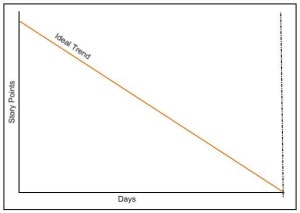Jenkins is a tool that is used for automation. It is mainly an open-source server that allows all the developers to build, test and deploy software. It is written in Java and runs on java only. By using Jenkins we can make a continuous integration of projects(jobs) or end-to-endpoint automation
What Is Jenkins?
Jenkins facilitates the automation of several stages of the software development lifecycle, including application development, testing, and deployment. Operating within servlet containers like Apache Tomcat, the technology is server-based.Continuous delivery (CD) and integration (CI) pipelines can be created and managed with Jenkins. The development, testing, and deployment of software applications are automated using CI/CD pipelines. You will be able to release software more regularly and with fewer problems if you do this.
- jenkins is flexible.
- You can add the n no.of plugins you want to add to the jenkins.
- You can automate the proceses of CI/CD pipelines of all the projects.
What is Jenkins CI/CD Pipeline?
Jenkins CI/CD stands for Continuous Integration/ Continuous Deployment first let us try to understand what is a pipeline. In computing, a pipeline is a set of stages or processes linked together to form a processing system. Each stage in the pipeline takes an input, processes it in accordance with a set of rules, and then sends the outputs to the stage that follows. Frequently, the pipeline’s overall output is its final step’s output. like the procedures outlined below
- Test code
- Build Application
- Push Repository
- Deploy to Server
All the steps mentioned above will perform in sequence one after the other if any step/stage get failed it will not move forward to another step/stage until the previous step got a success.
What is Jenkins Continuous Integration (CI)?
Jenkins Continuous integration means whenever new code is committed to remote repositories like GitHub, GitLab, etc. CI will continuously build, tested, and merged into a shared repository.
Benefits of Continuous Integration (CI)
- We can maintain the reports of the projects
- Deployments can be made within the given time
- Bugs can be found quickly.
What is Jenkins Continuous Deployment/Delivery (CD)?
Continuous Deployment
Continuous Deployment means automating the further stages of the pipeline automatically or manually deploying the application/code to different environments like Dev, Test, and Production. Automating the build is the main component of Continuous Integration and Continuous Deployment.
Continuous Delivery
Each and every build that passed all automated tests and was able to be fully automated and delivered into production only required one click of human intervention is called Continuous Delivery.
What Is Jenkins Freestyle Project?
Jenkins freestyle project is an configuration and options based project which will allows you to build,test, and deploy the application with automation by selecting the required configuration based on the requirement following are the some of the available in the freestyle project.
- Building and testing code
- Packaging applications
- Deploying applications to production servers
- Running reports


No comments:
Post a Comment